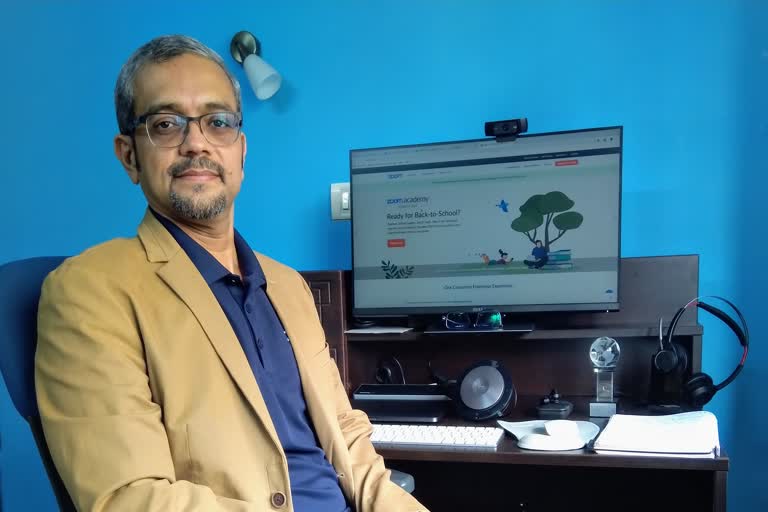Hyderabad:As the businesses came to a standstill during the Covid-19 induced lockdowns in last March, video conferencing platforms came to the rescue of entrepreneurs to provide business continuity. Zoom is one of such platforms that became popular during the pandemic and was most sought after by the employees and employers.
To know more about the journey of Zoom and the current issues related to data privacy and security, ETV Bharat spoke to Sameer Raje, General Manager and India Head, Zoom Video Communications.
Edited Excerpts:
Q. With the sudden imposition of lockdown, businesses used Zoom in a big way. As a result, there was an exponential rise in the number of users. Were you ready for that situation?
Since we were operating with a small team at the time of lockdown, I would say we were not really geared up for the sudden surge in number of users. To meet the growing demand, our team literally worked around 20 hours a day and tried to service as many customers as possible.
Q. As the economy has moved from the lockdown to unlock phase, employees have started going to offices. Some companies started exploring hybrid models by extending work from home/work from anywhere options. Against this backdrop, how Zoom as a product will serve the future needs of businesses?
First of all, Zoom is not a product but a platform of collaboration and offers collaboration services. The video conferencing services is just one component of our total services. We can offer complete collaboration services for the largest of the enterprise to even a small and mid-scale organisation.
The most important thing happened during the lockdown phase was people who were not so comfortable in using video started using video communication platforms. It resulted in a quick transformation.
On the other hand, companies also started realising the benefits of using video collaboration services such as reduction in travel, increased productivity, reduction in costs of infrastructure, etc.
Having said that, we completely understand that we can’t take away human touch entirely. So, in my view, hybrid workforce model is the way forward.
Q. How has Zoom adopted to the user needs in the last nine months and what were your major learnings from technological as well as product point of view?
